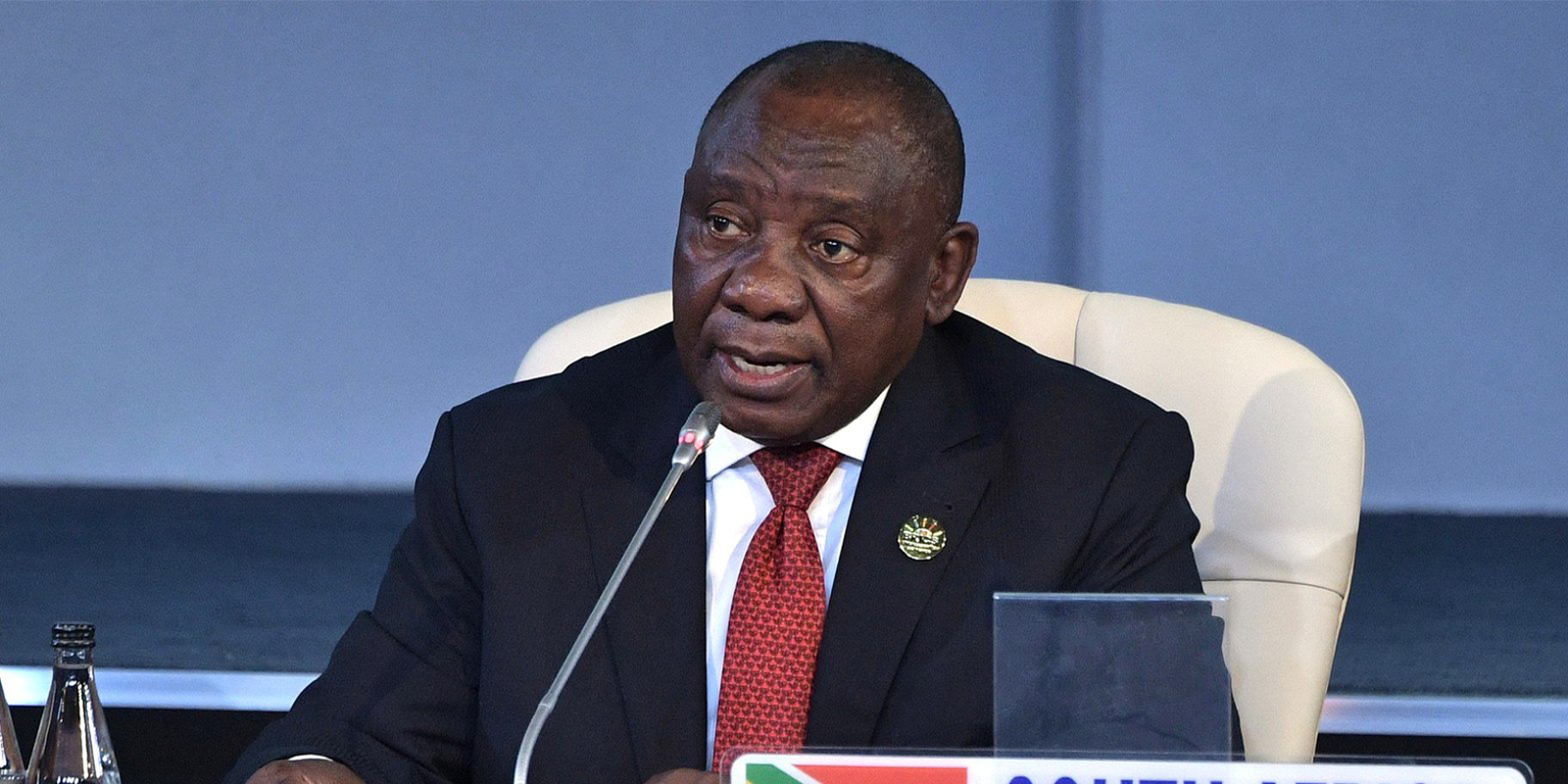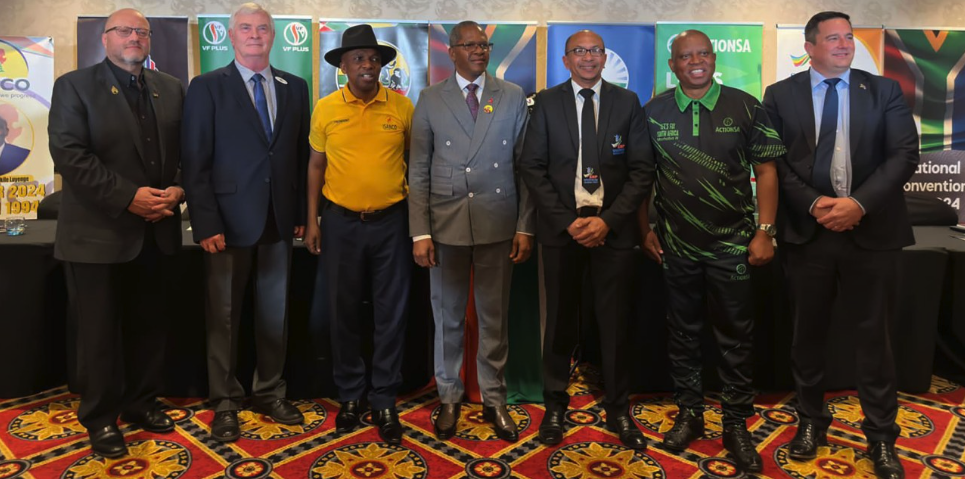News
All in All, It's Just Another BRICS in the Mall
The question of what benefit does the BRICS bloc provide for South Africa lingers. Investing a big chunk of time, money and energy in the BRICS is akin to withdrawing the last bits of your taxpayer's savings, going out for a fab meal and state dinner or two, and putting the remainder on red, argue Greg Mills and Ray Hartley.

Director, The Brenthurst Foundation

Research Director, The Brenthurst Foundation

On the eve of the BRICS summit in South Africa's golden mile of shopping in Sandton - one of the few remaining presentable areas of mismanaged Johannesburg – President Cyril Ramaphosa took the nation into his confidence on government's approach to foreign policy.
There have been some understandable jitters about this matter as South Africa refused to condemn Russia's invasion of Ukraine at the United Nations and then repeatedly entertained its Foreign Minister Sergei Lavrov, after holding joint naval exercises with Russia.
When criticism of the joint exercise mounted, the Minister of International Relations Naledi Pandor hosted Lavrov and said: "All countries conduct military exercises with friends worldwide." Perhaps she missed the point: the criticism was about her government's choice of friends.
Since then, there has been much water under the bridge. A court judgment looming, Ramaphosa finally relented and asked Russia's President Vladimir Putin not to attend the BRICS summit because South Africa would be compelled to arrest him. Putin, unusually, agreed to stand down and is now attending the event – including a dinner – on zoom.
Ramaphosa's lack of irony
Attempting to set the record straight, Ramaphosa said:
The key pillars of our foreign policy include the promotion of human rights, peace and stability and the strengthening of trade and investment ties with other countries.
All good and well. But why not give open and accountable democracy, which stands at the centre of South Africa's constitutional order, the limelight? Is this word too awkward for China's increasingly autocratic Xi? Might it cause Putin to choke on his borscht on the big screen?
Ramaphosa then moved on to the heft of BRICS. "Brazil, Russia, India, China and South Africa – make up a quarter of the global economy, they account for a fifth of global trade and are home to more than 40 per cent of the world's population."
While BRICS was vast, it was not its "sheer size" that was most impressive. More impressive was the body's influence.
"BRICS countries can collectively shape global dynamics, and acting together, have the potential to drive significant changes in the world economy and international relations. Together, the BRICS members have used their collective voice to call for a world that is more equitable, balanced and governed by an inclusive system of global governance."
Again, this would have been a good moment to use the 'd-word'. After all, nobody wants global governance to be dictated by autocrats that jail their journalists, right?
All of this on the back of a plea by Iqbal Surve, the co-chair of the forum and former chair of the BRICS business council, for "steps" to be taken "to prevent anti-BRICS sentiment of which there is much from the Western conservative axis".
Still, the lack of a sense of irony is not the only problem with BRICS.
The Global South narrative
The first and most fundamental of these is conceptual. The BRICS are purported to represent "Global South" aspirations. But as Stewart Patrick and Alexandra Huggins point out in a recent Carnegie paper, the term is misleading and unhelpful for a number of reasons, though this has not stopped some notables from employing it.
"Many countries of the Global South face huge debts, increasing poverty and hunger, and the growing impacts of the climate crisis," observed the UN Secretary-General Antonio Guterres last November. World Bank president Ajay Banga has also used the term, as has US President Joe Biden and some of his officials, including the national security adviser and the secretary of commerce.
So too have leaders of the Global South spoken in this way about themselves.
Coined originally by Oglesby, an American writer and activist, in 1969, the term is becoming increasingly popular among academics in search of a jargon rail. But that is no recommendation of its accuracy or usefulness.
Usage has unsurprisingly increased given revived bipolarism between the West and China/Russia, especially in the light of the latter's invasion of Ukraine, and growing economic problems in the developing world in the wake of growth slowdowns, debt mismanagement (for which read stealing) and the Coronavirus pandemic.
But, note Stewart and Huggins, the term lends itself to generalisations and flaunts committing similar mistakes that blighted development in the past. For one it supposedly represents what was once termed the "Third World", today a pejorative label, which includes not fewer than 134 countries.
Given the differences between large states and small, littoral and landlocked, oil-rich and poor, service economies and industrial powerhouses with large and small populations, including two-thirds of the earth's people, it risks "conceptual incoherence", coming up with premises and policies so general they are not useful, and by reinforcing "inaccurate and outdated dichotomies and stereotypes".
Indeed, many of its members have enjoyed impressive growth because – and not in spite – of the global economy that other members rail against.

It also lumps together diverse political regimes, including model democracies (Costa Rica for example) and totalitarian regimes (take your pick).
Failure of BRICS
But perhaps this suits some, and points to the second failure of the BRICS concept. How valuable is this body when its members don't share these core values, not least of human rights and the maintenance of global order?
The fact that South Africa is willing to support Russia in its war against Ukraine (or at least support Russia more than it supports Ukraine), says something about its rulers' human rights orientation which appears to draw inspiration from might not make it completely different to the governmental children of Mao and Stalin more than Mandela and Sisulu.
Third, if the BRICS want to change the basis of the world's power structures, what might it be its actionable recommendation for restructuring the United Nations? At its core, for all of the grandstanding on this issue, the problem with this objective, tired old pinata that it has become, is that the current members don't want to be diluted.
While we are regularly informed that all manner of countries want to join BRICS, it is not alone in the alphabet soup of new international bodies representing bits of the Global South, including the CIVETS (Colombia, Indonesia, Vietnam, Egypt, Turkey and South Africa) to the MINT economies (Mexico, Indonesia, Nigeria and Turkey) and the EAGLEs (Emerging And Growth-Leading Economies - Brazil, China, Egypt, India, Indonesia, South Korea, Mexico, Russia, Taiwan, and Turkey), IBSA (India, Brazil and South Africa), the 23-member IORA (Indian Ocean Rim Association, formerly the Indian Ocean Rim Association for Regional Co-operation), as well as VISTA, MIST/ MIKT/TIMS, Next 11, and many others not least the Southern African Development Community (SADC), the Common Market for Eastern and Southern Africa (COMESA) and most importantly, the African Continental Free Trade Area.
What is BRICS' comparative advantage given the diversity of its membership and their size and orientation, save what they are against (the West)?
Finally, related to the above, South Africa has chosen to put its limited resources – financial and human – behind BRICS. Is this sensible given that it should be investing as much as it can in accessing the richer markets of the world?
At last glance, the share of developed economies (members of the Organisation of Development and Co-operation, OECD, for instance) amounted to 63% of the global economy, three-quarters of world trade, 95% of official development assistance, and just 18% of the world's population.
Thus investing a big chunk of time, money and energy in the BRICS is akin to withdrawing the last bits of your taxpayer's savings, going out for a fab meal and state dinner or two, and putting the remainder on red.
You wouldn't do that with your own money, would you?
This article originally appeared in News24.

